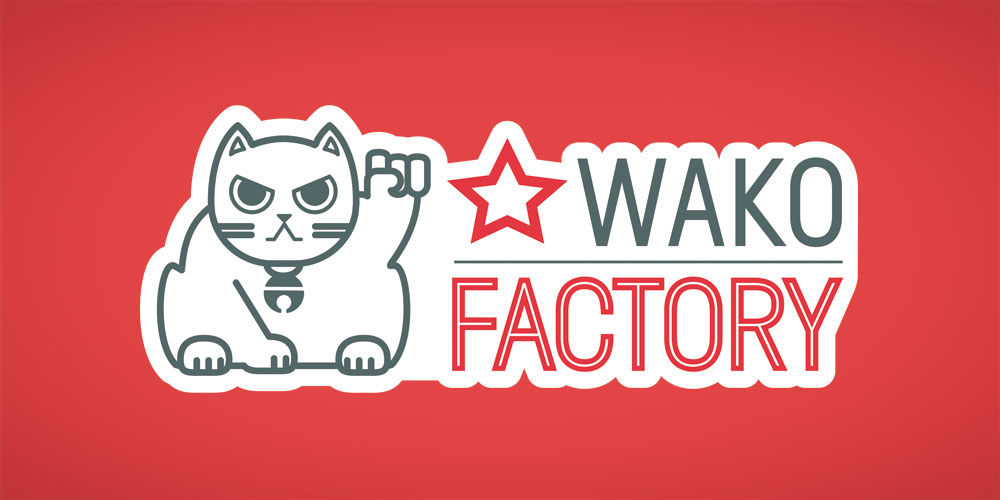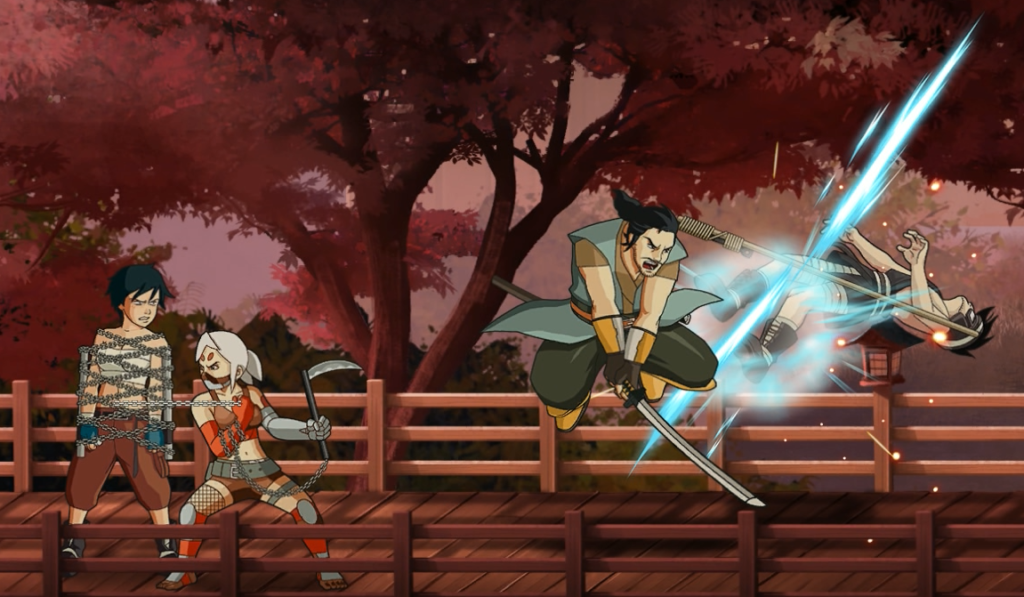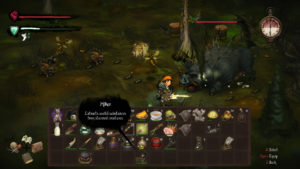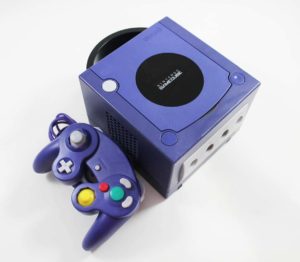
Wako Factory was established in 2014 by Kevin and Charlotte Buchet and became an official Indie Game Studio in early 2015, based in Nantes (France). We played their first game, Samurai Riot, and we loved its unique soundtracks, hand-drawn art style and old-school gameplay.
Kevin previously worked on popular games for many years, including Airlines Manager 2, Pyro Jump and Freaking Meatbag as well as others. He took on various roles, sometimes working as a Games Designer, other times as a Level Designer. He is currently the Lead Game Designer for Wako Factory. Charlotte was previously in charge of corporate identities and visual communication as a graphic designer. She then decided to jump into the gaming industry 7 years ago as a Lead Artist on games such as Politiquement Incorrect and Airlines Manager 2. She is now the Art Director at Wako Factory.
We had a chance to sit down with the co-founders and ask them a few questions.
Describe the dev cycle. How long did it take to develop the game and how many staff were involved?
Kevin – The game’s development lasted 3 years and we had a core of 7 people working on it. If we include contractors and external assistance, that would go up to around 15 in total. We had a long pre-production phases where we focused on the concepts at the heart of the game and then we went into production and finally released the game on Steam last September.
What were the main challenges in development? How did you resolve them?
Kevin – Making a video game always has its challenges. I think that the hardest part would have to be managing so many things at the same time. You have to check the marketing, community management, look for funding… It all takes time and as a small team, we had to work after hours for a long period of time.
Charlotte – The constant high workload made it difficult to step back and see the bigger picture, and we were stuck in this cycle of exhaustion which could have lead to us burning out. We had to learn to take our foot off of the pedal and make time for relaxation so that we would conserve enough energy to finish what we had started.
Kevin – Little by little we were able to delegate more effectively and now that the game has come out, the pressure has been lifted, but we are still working hard to improve the game.
While designing and creating Samurai Riot, what were your main influences?
Kevin – Lots of games have influenced Samurai Riot. In terms of gameplay, one of our biggest inspirations was the Streets of Rage series but we have also taken into account ideas from other retro games like Golden Axe or even Shadow Dancer. Modern games like Bayonetta were also factored in to our pre-production decisions.
Charlotte – Aside from in-game influences, we have always loved Japanese history and the Samurais. Even though Samurai Riot is not set in a specific time period or location, we wanted to take inspiration from an era like the Japanese Civil War, or Bakumatsu, when creating the game’s universe.

Why did you decide to revive the Beat ‘em Up genre in particular?
Kevin – We love playing co-op games together, that was our starting point. We spent a lot of time with games like Resident Evil 5 and Beat ‘em Ups and we saw that there was a gap in the market for this type of game. Old school Beat ‘em Ups are rare nowadays and we wanted to work on one, focusing more on the co-operative aspect that had been a staple of earlier games.
Charlotte – Our aim was to bring back the joy we had when we were kids, playing games like Streets of Rage sitting on the living room floor. This was how friendships were made, and we wanted to bring people back to those simpler times with Samurai Riot.
What is like working as an independent studio? Do you believe there are misconceptions about indie devs?
Kevin – Working as an independent studio grants you creative freedom when making a game and allows you to affect the development of a game across many fields. Every staff member has a great deal of responsibility but the work is gratifying. It allows you to work on types of games that are too risky for the big studios due to the difference in budget. In short, it allows you to try new things and to make games in genres that would otherwise be left behind.
Could you give us a hint about what you are currently working on?
Kevin – Right now we are working on improving the game bit by bit. On that topic, there will soon be an update that will greatly improve the performance of the game, allowing gameplay to be smooth at all times. We also have a new Discord server!
Follow Wako Factory on Facebook, Twitter and Discord.
Samurai Riot is also on sale at the moment, so if you fancy picking it up at a pinch, it’s available here







